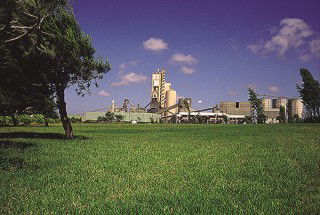Cement importers in the Philippines have responded to concerns about influx of foreign cement, saying that it has not significantly harmed the local industry, during the ongoing Tariff Commission’s (TC) public hearing.
According to Philcement Corp, domestic cement manufacturers have posted growth in the last five years, contradicting claims that imports have harmed them.
The company's Assistant Vice-President for Business Development, Maria Monica Cueto-Mamites, told the TC hearing on Wednesday that "There is clear evidence of no significant impairment, as there are large domestic players that have shown resilience, competitiveness, and growth over the period of investigation (PoI).”
Instead, Ms Cueto-Mamites suggested factors other than imports may have have caused the declining performance of Cement Manufacturers' Association of the Philippines (CeMAP) members during the PoI.
"In our analysis, we have noted that the revenue of CeMAP members indeed dropped at an annual average of minus seven per cent over the period of investigation... but the domestic companies who are not members of CeMAP had an annual average topline growth of seven per cent,” she added.
She cited a similar trend in operating income, where non-CeMAP companies recording average annual growth rates of 0.5 per cent while CeMAP members showed a 174 per cent decline.
Drawing upon reports submitted to the Securities and Exchange Commission and the Philippine Stock Exchange, Ms Cueto-Mamites said that a combination of settlements, the impact of the election and global commodity prices, higher input costs, delays in government projects, and unfavourable weather conditions as reasons for their declining performance.
She added that the domestic cement industry is highly regulated and benefits from a variety of tariff and non-tariff forms of protection.
Earlier in the week, the TC heard that only 53 per cent of cement production capacity in the Philippines is currently in use.
